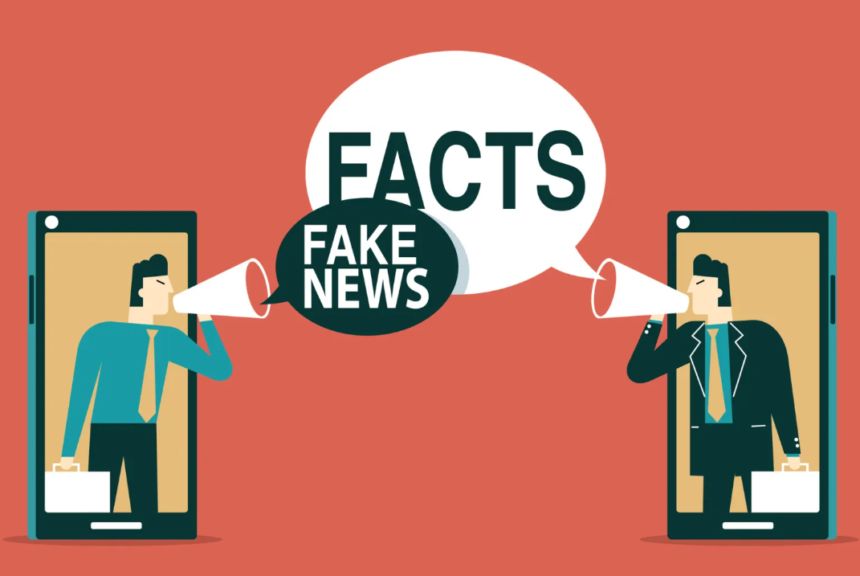In the face of disinformation, defenders of democracy are often drawn into endless battles against falsehoods. This is precisely the trap laid by anti-democratic movements. Their aim is not to win the debate, but to waste our time and energy – keeping us busy defending our work instead of advancing it. Rather than playing by their rules, we must focus on protecting our shared rights and strengthening democracy.
In the past months, we have witnessed an acceleration of coordinated messages aimed at twisting reality into absurd contortions.
Disinformation is not just a challenge to media integrity or electoral security – it is an assault on the fundamental rights that underpin democracy and the rule of law. It threatens individuals’ ability to access reliable information, express ourselves freely, and participate meaningfully in public life.
Failure to fight disinformation means the loss of freedom of expression, the loss of freedom of assembly, and the loss of freedom from discrimination. Most disturbingly, it will ultimately lead to the loss of protection from those in power, but not in office, and those in office but not in power.
Flooding the Zone with Disinformation, Polluting Our Democracy
When a social media CEO amplifies his breathless screams that an NGO, participating in a roundtable on European regulation, is “destroying democracy,” the message is clear: intimidation. Independent voices – whether in media, civil society, or the judiciary – are targeted and incoherently accused of whatever wild fantasy could be exploited to delegitimise democratic institutions, attacking the accountable to boost the irresponsible.
Failing to limit the spread of disinformation is a failure to protect free expression; it enables mass manipulation, lies, and arbitrary censorship by the most powerful. A failure to nurture our shared information space does not foster open debate – it creates an environment where shouted falsehoods drown out spoken facts, where attacks silence dissent, and where the most powerful dictate and dominate the terms of public discourse.
Only Law Can Protect Democracy
If vastly rich and powerful private companies, such as online platforms, are not required to mitigate the harms their business models generate, and if actors spreading disinformation face no consequences, the result is not more freedom – it is the rise of arbitrary, unaccountable rule by the most powerful and intimidating. The law of the jungle is not a law we can or should rely on. We should not trust the vultures that try to persuade us of the contrary.
Democracy means accountability and transparency. Democratic regulation gives society the ability to choose freedom over anarchy – it is a human rights safeguard against the forces that seek to dismantle it. Just as laws exist to prevent poisonous ingredients in food and drugs, regulations on disinformation and platform accountability are essential for protecting public trust and democratic institutions.
Do Not Feed the Beast
Across Europe, researchers, journalists, civil society members, and lawyers are not backing down. Through their daily work and dedication, they continue to educate on how disinformation, driven by noxious business models and perverse incentives, is affecting us. This work is essential to protect the most vulnerable, to protect everyone’s fundamental rights, and to gather evidence of platforms’ mismanagement. They need more support and more space to expand their work, given the expansion of the threats against them.
Let’s Not Play the Game They’ve Designed
We can be sure that even when we win an argument based on whatever false premise is their hot topic today, anti-democratic movements will simply invent another one tomorrow. These false debates have a single goal: to drain our time and energy – forcing us to defend our work instead of doing it.
We asked big tech, in the form of ChatGPT, is it better not to respond to someone who seeks to misdirect a debate with absurd arguments.
ChatGPT said:
If the person is arguing in bad faith – just trying to derail the conversation – then ignoring them and staying on topic is often the best move. Engaging with absurd arguments can give them more attention than they deserve.
Maybe we should listen to big tech sometimes.
The community countering disinformation should not feel shy nor apologetic for defending our rights and the rule of law. We must stand firm against coordinated deception, and continue to develop accountable, proportionate, and democratic responses to safeguard and expand our fundamental rights. We cannot simply abdicate responsibility and put the burden on the public.







